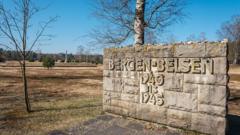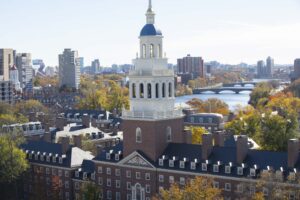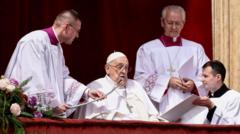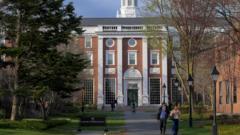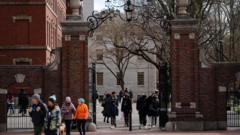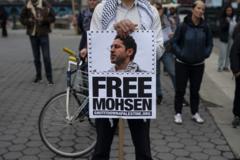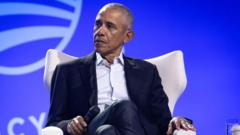A powerful encounter between descendants of Holocaust survivors and perpetrators sheds light on the complexities of confronting the past and understanding the impact of history on present-day identities.
**Confronting the Past: A Journey Through Holocaust History**
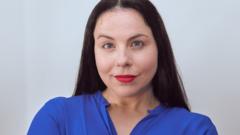
**Confronting the Past: A Journey Through Holocaust History**
Amie Liebowitz reflects on her family's Holocaust history while speaking with Cornelia Stieler, whose grandfather's role as a train driver to Auschwitz evokes deep emotions.
As the great-granddaughter of a woman who met a tragic fate in Auschwitz, I never anticipated the emotional weight of a recent meeting. Interviewing Cornelia Stieler, whose grandfather drove trains to the death camp, forced me to confront the interwoven narratives of survivors and their aggressors.
I grew up hearing about my grandfather Ludvig, a Holocaust survivor who was only 15 when he was separated from his mother, Rachel, doomed to a horrific fate at Auschwitz in 1944. The stories lingered in my mind, colored by the memories shared among Holocaust survivors in my family living in Australia.
In Germany, as I sat across from Cornelia, I learned about her grandfather's life. Initially a coal miner, after a near-fatal incident, he became a train driver for Deutsche Reichsbahn. At first, he transported goods — but later, he unwittingly contributed to the transport of countless lives to their deaths.
"My grandfather saw many macabre events and was unsure how to escape this reality," Cornelia shared, prompting me to consider the moral complexities of his choices. I struggled for words, recollecting my family’s dark history and the toll it took on our legacy.
“If I were younger, I might feel anger towards you,” I confessed, feeling catch my breath. “But I recognize the challenge of owning such a burden."
Cornelia, with tears in her eyes, extended her hand. "It’s crucial we hold this moment together... My grandfather felt intense guilt and died with that weight," she responded, underlining the magnitude of the history they are both learning about.
She revealed the backlash her research received from some in her hometown of Schönwald, Poland, where her family originated. Once a model village for the Nazi regime, the town is now struggling with its history of complicity and horror, having witnessed the death marches as the war neared its end.
As I listened to Cornelia recount the brutal realities the villagers faced during WWII, I felt a deeper connection through shared sorrow. The plight of those forced through Schönwald during the death marches became a "silent witness" of suffering, embodied in the cobbled streets lined with stones where prisoners walked nearly frozen.
The past looms large over Schönwald, yet time has not allowed for a full reckoning. “Many prefer to suppress this terrible chapter,” Cornelia observed. The struggle to intertwine German remembrance culture with personal narratives complicates conversations about guilt, innocence, and complicity.
Curiously, Germany’s remembrance culture, while robust in public discourse, faces challenges when it comes to individual family histories, as many citizens find it easier to distance themselves from their ancestors' actions.
In a significant act of remembrance, recent initiatives including the unveiling of a memorial in Bojków have begun to spotlight these narratives, uniting Jews, Poles, and Germans in honoring those lost.
Through our conversations, Cornelia and I found a shared purpose in keeping history alive, grappling with the reality of rising antisemitism and the dismissive attitudes that can obscure human atrocities. It is within our shared stories, both of immense despair and resilience, that we forge hope for future generations to remember, understand, and prevent history from repeating itself.
In confronting the legacies of good intentions gone awry, it becomes evident that healing lies in dialogue and acknowledgment. “We must talk about this — to remind ourselves what humanity can do,” Cornelia emphasized.
Together, we are finding a way to ensure that our family legacies serve as catalysts for understanding and awareness rather than silence and division.

